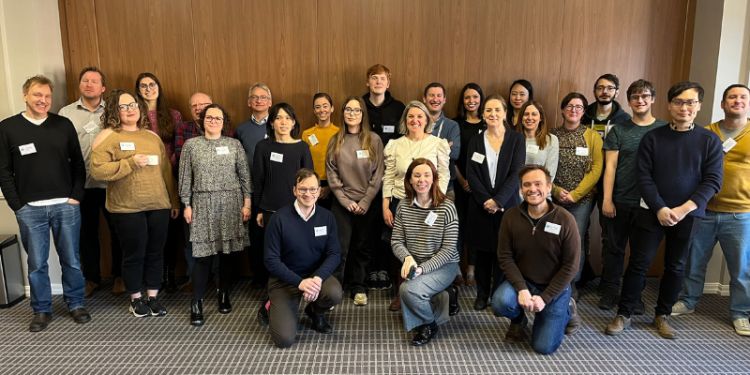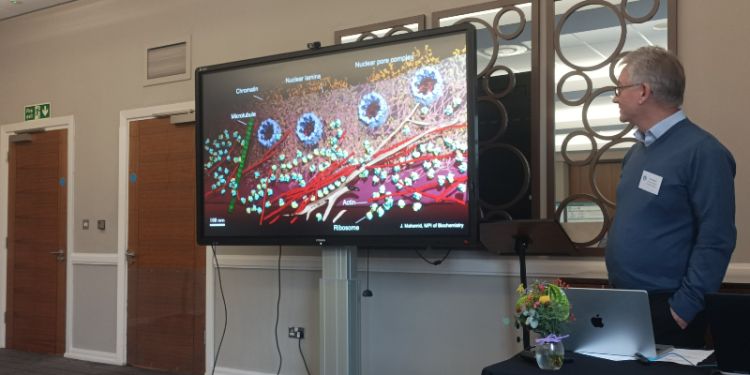The scientists aiming to crack the ribosome code

A national group of researchers, who are aiming to discover how ‘specialised ribosomes’ decode their target genes, have officially launched their ambitious project.
The team of 21 scientists, from Universities of Leeds, Sheffield and Nottingham set the vision for the innovative new study at a kick-off meeting in Leeds on Tuesday 5th December.
RiboCode - Unlocking the secrets of specialised ribosomes across eukaryotes, which is being led by Dr Julie Aspden, Associate Professor in the School of Molecular and Cellular Biology, and funded by a strategic Longer and Larger (sLoLa) grant from BBSRC, will provide an unprecedented understanding of how specialised ribosomes – minute particles of ribonucleic acid (RNA) and proteins – regulate the expression of our genes through changes in their composition.
Ribosomes are found within all cells. They act like cellular factories, building proteins for different jobs based on instructions from genetic material.
The RiboCode team is aiming to generate a ‘ribosome code’ to explain common mechanistic features of how specialised ribosomes – ribosomes that have unique jobs – regulate translation across yeast, insects, plants, human stem cells and viral infection.
It is hoped this new code will enable the researchers to predict additional routes of specialisation and provide the potential for future engineering of cells.
This could unleash the potential to manipulate ribosomes for agricultural and biotechnological purposes, as well as provide therapeutic targets for viruses and diseases where specialised ribosomes act, such as cancers.
Collaboration in practice
The day comprised an engaging mix of presentations and breakout sessions, with plenty of opportunity for collaborative discussion.
Flash presentations in the morning introduced RiboCode’s key interdisciplinary themes: evolutionary genomics, mRNA translation, structure of specialised ribosomes and transformative technologies.

Image description: Professor Alan Warren (University of Cambridge), member of RiboCode’s scientific advisory board, presenting on his research into diseases caused by mutations in the ribosome: ribosomopathies.
There were also talks on research culture, community outreach, sustainability and career development.
In attendance were Dr Tamsin Shepherd-Waring, Senior Portfolio Manager at Biotechnology and Biological Sciences Research Council (BBSRC), and the project’s scientific advisory board comprising academic experts Professor Alan Warren, Professor Anne Willis (both University of Cambridge) and Dr Olivia Rissland (University of Colorado), as well as industry collaborator Dr Mark Bruce from Oxford Nanopore Technologies.
This is an incredibly exciting project as we will be using cutting-edge, innovative approaches to understand the ribosome across yeast, animals, plants and viruses. Our findings have the potential to impact our understanding of several human diseases, from anaemia and viral infection, to defects in growth and development, as well as cancer.
She added “it was fantastic to have the team come together to discuss our progress and ideas for our shared mission.”




